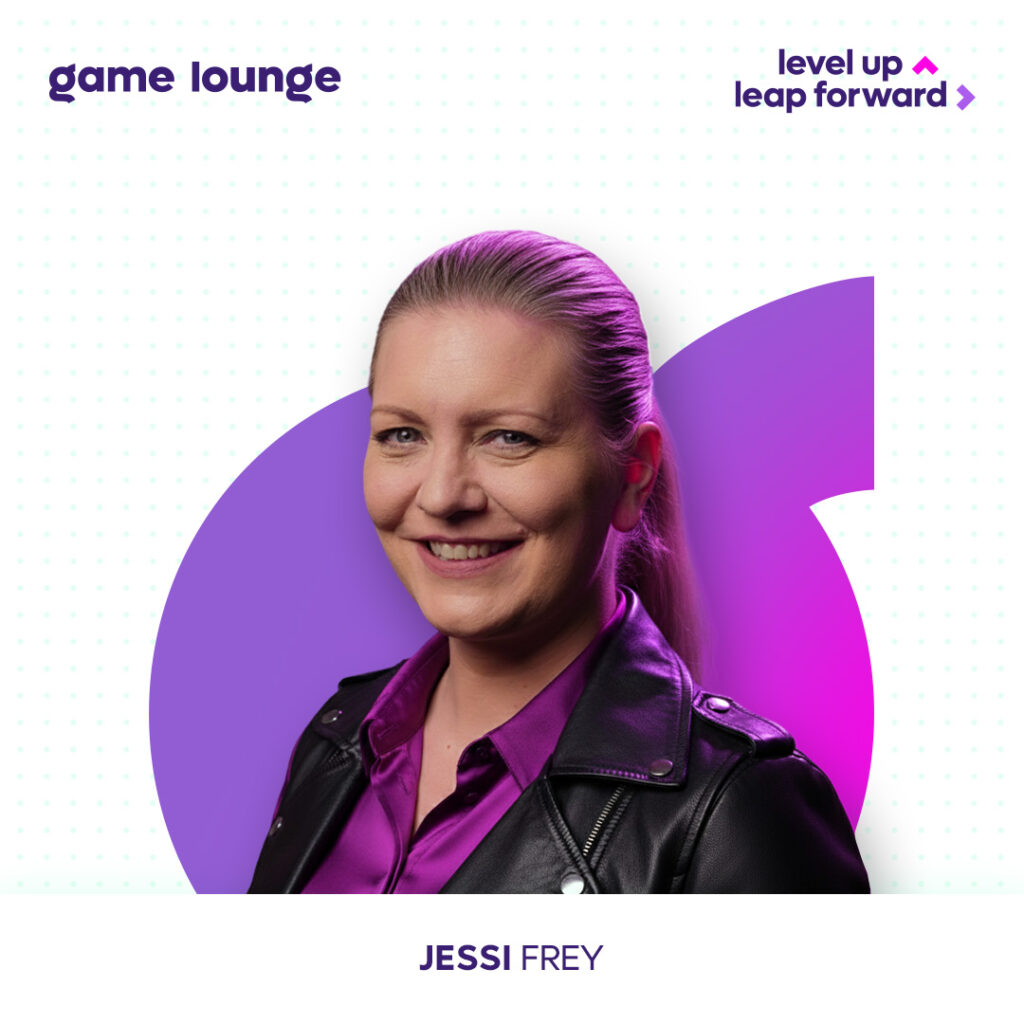- Insights
- Culture
- News
Game Lounge bets on AI with Jessi Frey

The move is as much about timing as it is about technology. Frey’s background is not rooted in gaming, but in digital product development, with stints at Nokia and Dyson. She had already dipped into the affiliate marketing world, but the pivot came when AI tools became mainstream in late 2022. Unlike many executives who cautiously watched technology mature, she jumped in early, experimenting with creative applications and hands-on projects. “I soon realised that I wanted to fully focus on AI.” she explained.
Job that didn’t exist yesterday
Frey is candid about the attraction of the unknown. AI is volatile, untested, and evolving at an unprecedented speed. To her, that’s not a hazard but a thrill. “Some people might find it stressful to navigate such a constantly shifting territory, but this is where I thrive,” she says. “I learn so much every day, I work on experimental projects, and I get to collaborate with all teams across Game Lounge. It’s a lot of fun.”
This willingness to embrace uncertainty makes her role less about corporate governance and more about cultural transformation. She rejects the notion of becoming a gatekeeper. “I don’t want to be the ‘AI department’ that people become dependent on,” she insists. “I want to empower the teams and accelerate their AI adoption, so that they can become the AI experts in their own work.”
Experimentation without guarantees
The challenge, as Frey points out, is not scale but uncertainty. She has managed massive projects in past roles, products that reached millions of users. But it is the smaller, more fragile experiments at Game Lounge that seem to energise her. “It’s cool to create products that are used by millions of people but they are also very complex to manage,” she admits. At Game Lounge, she relishes the freedom of innovation projects “even if the outcome is unknown and many projects never make it out of the lab.”
“Experimentation without a fear of failure is the nature of innovation,” she adds. “And I embrace that mindset.” The admission is refreshing in an industry where buzzwords often trump substance.
At Game Lounge, this means launching internal tools to automate time-consuming processes and, just as importantly, knowing when to kill off a project that doesn’t work. Innovation here is not a linear pipeline but a series of wagers, most of which may fail, but some of which could reshape the company’s operations.
Culture that tolerates risk
This appetite for risk is possible only within the right cultural framework. Frey highlights trust and respect as defining features of Game Lounge’s work environment, noting that “people are unafraid to come forward with their ideas and opinions.” She adds, with a smile, that “we also have amazing team events!”
The emphasis on openness matters. “I love working with people who are experts in their domain, and get the ideas flying about where we are heading and what new opportunities that will open up for us,” she says. In other words, innovation is not a department but a conversation. This openness, coupled with a willingness to party hard, reflects a company culture that avoids the stiffness often seen in corporates scrambling to look “innovative.”
Frey is clear about where AI is heading. “AI is going to make technology feel like humans and we will interact with it like we would with people,” she says. If AI is the great leveller – cheap, accessible, and capable of executing at scale, then the limiting factor is no longer skill but imagination. As Frey puts it, “Going forward it is less important to know how to do things and it’s more important to have ideas and be able to ask the right questions.”
And then the sharper challenge: “When you can do anything, what are you going to do?”



